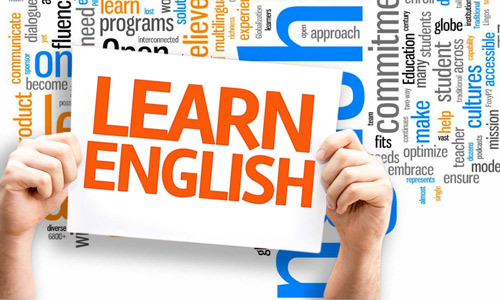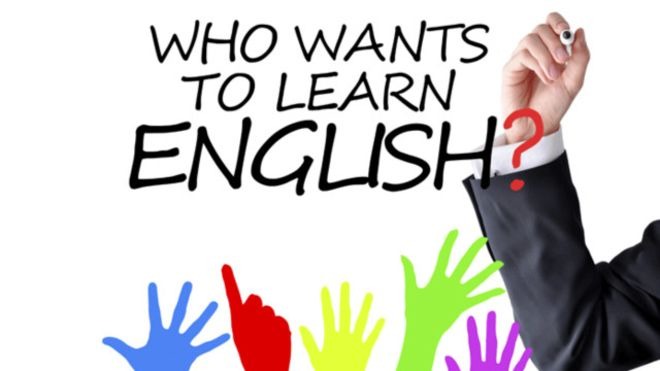
Bài tập tiếng Anh lớp 10 unit 4 có đáp án
Cùng English4u luyện tập tiếng Anh lớp 10 theo từng bài và bám sát kiến thức sách giáo khoa. Việc luyện tập tiếng Anh qua các bài tập tại nhà sẽ giúp các em ôn thi tốt hơn.
Cùng English4u luyện tập tiếng Anh lớp 10 theo từng bài và bám sát kiến thức sách giáo khoa. Việc luyện tập tiếng Anh qua các bài tập tại nhà sẽ giúp các em ôn thi tốt hơn.

Bài tập tiếng Anh lớp 10 unit 4
Bài tập tiếng Anh lớp 10 có đáp án chuẩn
UNIT 4 SPECIAL EDUCATION
I. Pick out the words that have the italicized letter is not pronounced /ʊ/ or /ɔ:/.
|
1. commune |
rob |
condition |
follow |
……………………. |
|
2. organize |
money |
force |
for |
……………………. |
|
3. sport |
stall |
talk |
shake |
……………………. |
|
4. sorrow |
employ |
organize |
work |
……………………. |
|
5. occupation |
opposition |
obligation |
obtain |
……………………. |
|
6. all |
computer |
water |
born |
……………………. |
II. Choose the correct words to complete the passage.
The New York Institution for the Blind was (1)………..in 1831, about five years after Louis Braille had developed (2)………..system of writing for the (3)……….. It was one of the first schools in the United States to provide an (4)………..program for children who were blind or (5)………..impaired. Early in the twentieth century the name was (6)………..to The New York Institute for Special Education (NYISE) to better reflect the (7)………..expanded focus and commitment to children with a variety of (8)………..
|
1. a. discovered |
b. founded |
c. located |
d. provided |
|
2. a. the |
b. this |
c. his |
d. its |
|
3. a. deaf |
b. blind |
c. mute |
d. disabled |
|
4. a. educated |
b. educating |
c. education |
d. educational |
|
5. a. visually |
b. mentally |
c. hearing |
d. badly |
|
6. a. renamed |
b. adjusted |
c. changed |
d. developed |
|
7. a. school’s |
b. program’s |
c. system’s |
d. founder’s |
|
8. a. impairments |
b. injuries |
c. handicaps |
d. disabilities |
III. Rewrite the sentences using a phrase with the and an adjective instead of the underlined phrases.
1. People who have lots of money have comfortable lives.
The rich have comfortable lives.
2. We live near a special school for people who can’t hear.
……………………………………………………………………………………
3. The old soldiers were holding a service for those who had died.
……………………………………………………………………………………
4. The government should do more for people who do not have enough money.
……………………………………………………………………………………
5. I’m doing a course on caring for people who are mentally handicapped.
……………………………………………………………………………………
6. We need to provide more shelters for people who are without place to live.
……………………………………………………………………………………
7. People with severe disabilities need full-time care.
……………………………………………………………………………………
8. Mr. Micheal grew tulips but he doesn’t any more.
……………………………………………………………………………………
9. I prefer listening to classical music now, although when I was young I couldn’t stand it.
……………………………………………………………………………………
10. My sister looked so fat when she returned from Paris.
……………………………………………………………………………………
VI. Choose the correct form of the verbs.
It is sometimes said that there is nothing new in the world of fashion. Annabelle was a well-known model during the seventies. When her children were in their early teens they (1) were enjoying/ used to enjoy looking at her old photo albums. They (2) were finding/ found it hard to believe that she (3) was wearing/ used to wear such strange clothes. (4) Did people really use to think/ were people really thinking flared trousers looked good? And those ugly platform shoes! She (5) was admitting/ admitted that people (6) were often falling/ often used to fall over because the heels were so high. In the early ninieties, however, Annabelle noticed to her amusement that seventies styles (7) were/ used to be in fashion again. ‘I (8) planned/ was planning to throw all my old clothes away,’ she said, ‘but my daughter went to a party last week, and guess what she (9) used to wear/ was wearing – that’s right, some of my old clothes!’
VII. Match the sentence pair and join them with which.
|
A |
B |
|
1. My phone is out of order. |
It means he can’t get about very easily. |
|
2. Rachel’s mother paid for the meal. |
This was good for the garden. |
|
3. My brother is disabled. |
It’s made her very depressed. |
|
4. You left the key in the car. |
That was very kind of her |
|
5. Vicky didn’t get the job. |
This surprised everybody |
|
6. The police blocked off the road. |
That seemed to amuse everyone. |
|
7. It rained all night. |
That was rather careless of you |
|
8. David helped me clear up. |
That caused a traffic jam. |
|
9. Tom pushed Nick into the swimming pool. |
It’s a real nuisance. |
|
10. Jim passed his driving test. |
That was very kind of him. |
1. My phone is out of order, which is a real nuisance.
2. ………………………………………………………………………..
3. ………………………………………………………………………..
4. ………………………………………………………………………..
5. ………………………………………………………………………..
6. ………………………………………………………………………..
7. ………………………………………………………………………..
8. ………………………………………………………………………..
9. ………………………………………………………………………..
10. ……………………………………………………………………….
VIII. Put the correct form of the verbs in brackets.
A: Do you enjoy (1)…………………(be) at university?
B: Yes, I do, although I often miss (2)…………………(see) my old school friends.
A: Don’t you mind (3) …………………(travel) so far everyday?
B: No, it only takes me an hour or so (4)………………(get) there. Sometimes I manage (5) …………………(work) on the bus.
A: Don’t you find all the noise and people prevent you from (6)……………… (concentrate)?
B: Not really. I usually do a bit of reading. Are you still at school or have you got a job?
A: I’m still at school. I hope (7) …………………(go) to the university next year, but I haven’t applied anywhere yet.
B: I suggest you (8) …………………(apply) soon – it’s getting late.
A: Where would you advise me (9) …………………(apply)?
B: What subjects are you studying?
A: Physics, chemistry and biology. I want (10) …………………(study) physics at university.
B: I would recommend (11) …………………(apply) to Newton University first of all, but why don’t you apply to one or two other universities as well?
IX. Read text carefully , then choose the correct answer.
Hearing – impaired people cannot hear sounds well. How do they ‘hear’ words and talk?
Many hearing – impaired people use American Sign Language (ASL). They talk with their hands. Sometimes two hearing – impaired people talk to each other. They both use ASL. Sometime a person listens to someone talking, and then he or she makes hand signs.
There are two kinds of sign language. One kind has a sign for every letter in the alphabet. The person spells words. This is finger spelling. The other kind has a sign for whole words. There are about five thousand of these signs. They are signs for verbs, things and ideas. Some of the signs are very easy, for example, eat, milk, and horse. You can see what they mean. Others are more difficult, for example, star, egg, or week.
People from any country can learn ASL. They don’t speak words. They use signs, so they can understand people from other countries.
ASL is almost like a dance. The whole body talks. American Sign Language is a beautiful language.
1. How do many hearing-impaired people “talk”?
|
a. by eyes |
b. by signals |
c. by works |
d. by hands |
2. How does a person interpret for hearing-impaired people?
a. He listens to someone talking, and then makes hand signs.
b. He talks through a special equipment used for the deaf.
c. He listens to someone talking and writes down the words.
d. He uses hand signs to translate what hearing-impaired people say.
3. How many signs are there for finger spelling?
|
a. 2 |
b. 24 |
c. 26 |
d. 32 |
4. Why can people from different countries talk to each other with ASL?
a. Because they speak different languages
b. Because they use signs instead of words.
c. Because they can not hear.
d. Because they understand each other.
5. Which of the following sentences is not true?
a. Hearing-impaired people cannot hear sounds well.
b. There are more signs for words than for letters.
c. A person who interprets for hearing-impaired people can hear.
d. Africans cannot learn ASL because they don’t speak English.
6. What is the main idea of the text?
a. ASL helps hearing-impaired people talk, but it is difficult to learn.
b. There are two kinds of sign language.
c. ASL is a beautiful language that helps hearing-impaired people talk to others.
d. People in different countries can use American Sign Language to communicate with each other.
X. Complete the second sentence so that it has a similar meaning to the first one.
1. No one has seen Peter since the day of the party.
Peter……………………………………………………………………………..
2. We haven’t seen him for over twenty years.
It’s……………………………………………………………………………….
3. She went to the zoo last year and that is where she saw a real tiger for the first time.
Before she……………………………………………………………………….
4. We couldn’t drive because of the fog.
The fog prevented……………………………………………………………….
5. He used to depend on his parents for money.
No longer……………………………………………………………………….
6. It is the most interesting novel I’ve ever read.
I have……………………………………………………………………………
7. Although she lived in difficult conditions, she worked very hard.
In spite of………………………………………………………………………
8. The flight to London lasted more than three hours.
It………………………………………………………………………………...
9. The weather was so bad that we couldn’t go sailing.
The weather was not……………………………………………………………
10. The plane took off before we arrived at the airport.
By the time……………………………………………………………………

Luyện bài tập tiếng Anh tại nhà cùng bạn bè
ĐÁP ÁN:
I. 1. condition 2. money 3. shake 4. work 5. obtain 6. Computer
II. 1. b 2. c 3. b 4. d 5. a 6. c 7. a 8. D
III.
2. We live near a special school for the deaf.
3. The old soldiers were holding a service for the dead.
4. The government should do more for the poor.
5. I’m doing a course on caring for the mentally handicapped
6. We need to provide more shelters for the homeless
7. The severely disabled need full-time care.
8. Life must be hard for the unemployed in our society today.
9. What can we do to feed the hungry?
10. Braille is a reading system for the blind.
IV.
|
3. The sick |
5. the unemployed |
7. the poor |
9. the deaf |
|
4. the young people |
6. the old people |
8. the homeless |
10. the disabled people |
V. Đáp án gợi ý
2. Barbara used to stay in Italy/ Barbara used to stay with an Italian family.
3. I didn’t use to drink coffee in the morning.
4. We used to be interested in our work.
5. I didn’t use to enjoy traveling by train/ I didn’t use to like traveling by train/ I used to dislike traveling by train.
6. I used to go to the church.
7. We used to live in the city/ We didn’t use to be happy.
8. Mr Micheal used to grow tulips.
9. I didn’t use to like classical music/ I used to dislike classical music.
10. My sister used to be thinner/ My sister used to stay in Paris.
VI.
|
1. Used to enjoy |
4. Did people really use to think |
7. were |
|
2. found |
5. admitted |
8. was planning |
|
3. used to wear |
6. often used to fall |
9. was wearing |
VII.
2. Rachel’s mother paid for the meal, which was very kind of her.
3. My brother is disabled, which means he can’t get about very easily.
4. You left the key in the car, which was rather careless of you.
5. Vicky didn’t get the job, which made her very depressed.
6. The police blocked off the road, which caused a traffic jam.
7. It rained all night, which was good for the garden.
8. David helped me clear up, which was very kind of him.
9. Tom pushed Nick into the swimming pool, which seemed to amuse everyone.
10. Jim passed his driving test, which surprised everyone.
VIII.
|
1. being |
4. to get |
7. to go |
10. to study |
|
2. seeing |
5. to work |
8. apply/ should apply |
11. applying |
|
3. traveling |
6. concentrating |
9. to apply |
|
IX. 1. d 2. a 3. c 4. b 5. d 6. C
X.
1. Peter hasn’t been seen since the day of the party.
2. It’s over twenty years since we saw him.
3. Before she went to the zoo last year she hadn’t seen a real tiger.
4. The fog prevented us from driving.
5. No longer does he depend on his parents for money.
6. I have never read such an interesting novel before.
7. In spite of her difficult living conditions, she worked very hard.
8. It took more than three hours to fly to London.
9. The weather was not fine enough for us to go sailing.
10. By the time we arrived at the airport the plane had taken off.
Với các dạng bài tập như thế này, các em nên download về máy tính của mình để luyện tập hàng ngày tại nhà khi có thời gian. Cố gắng sắp xếp và duy trì thói quen học tiếng Anh mỗi ngày sẽ giúp bạn cải thiện trình độ đó. Download bản đầy đủ tại đây.
Bài viết cùng chuyên mục
- Bài tập tiếng Anh lớp 10 unit 12 có đáp án 06/10
- Bài tập tiếng Anh lớp 10 unit 11 có đáp án 06/10
- Bài tập tiếng Anh lớp 10 unit 10 có đáp án 04/10
- Bài tập tiếng Anh lớp 10 unit 9 có đáp án 03/10
- Bài tập tiếng Anh lớp 10 unit 7 có đáp án 30/09
- Bài tập tiếng Anh lớp 10 unit 6 có đáp án 28/09
- Bài tập tiếng Anh lớp 10 unit 5 có đáp án 28/09
- Bài tập tiếng Anh lớp 10 unit 3 có đáp án 26/09
- Bài tập tiếng Anh lớp 10 unit 8 có đáp án 24/09
- Bài tập tiếng Anh lớp 10 unit 2 có đáp án 24/09









.png)






